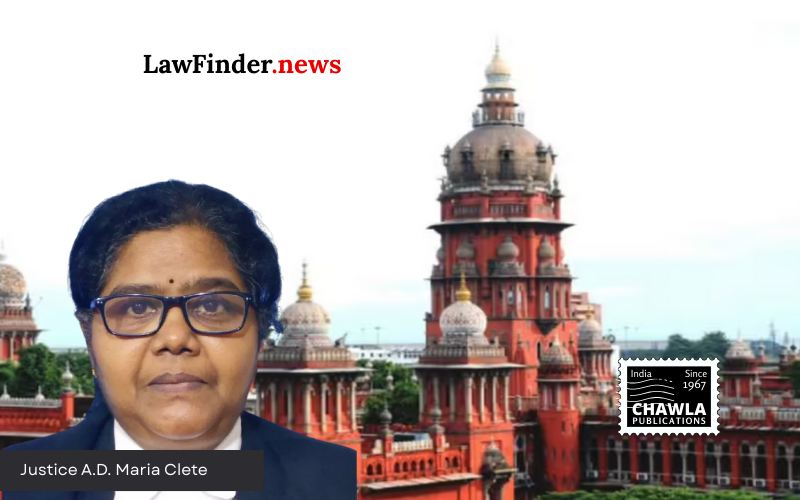Madras High Court Permits Recovery of Excess Payment from Serving Employee. Court Rules Against Junior Engineer's Petition, Citing Supreme Court Guidelines on Recovery from Employees
In a significant ruling, the Madras High Court, Madurai Bench, has dismissed a petition filed by K. Sivakumar, a Junior Engineer Grade II, seeking to restrain the Tamil Nadu Generation and Distribution Corporation Limited (Tangedco) from recovering an alleged excess payment amounting to Rs. 3,35,827. The judgment, delivered by Justice Dr. A.D. Maria Clete on September 19, 2025, reinforces the legal position that recovery of excess payment from employees still in service is permissible, distinguishing it from cases involving retired or soon-to-retire employees where considerations of hardship apply.
The petitioner argued against the recovery, which was initiated following an audit revealing the excess payment. Tangedco maintained that the excess pay fixation was communicated to the petitioner, who had not repaid the amount despite being aware of the overpayment.
The court relied heavily on the Supreme Court's judgment in State of Punjab v. Rafiq Masih, which outlines situations where recovery is deemed impermissible, such as for Class-III and Class-IV employees, retired employees, or cases of extreme hardship. However, the principles of hardship do not extend to employees who are currently serving, as in Sivakumar's case.
The Supreme Court's decision in Chandi Prasad Uniyal v. State of Uttarakhand was also referenced, emphasizing the responsibility to recover excess payment of public funds, which cannot be retained by employees as a matter of right unless it results in extreme hardship.
Justice Maria Clete concluded that since the petitioner is still in service, the recovery of the excess amount is justified and dismissed the writ petition, closing the related miscellaneous petitions without costs.
This ruling underscores the judiciary's stance on safeguarding public funds and the conditions under which recoveries from employees can be challenged. It reiterates the importance of distinguishing between employees in service and those facing retirement when considering recovery actions.
Bottom Line:
Recovery of excess payment made to an employee during service is permissible, especially when the employee is not on the verge of retirement or already retired, as considerations of hardship applied in such cases do not extend to employees still in service.
Statutory provision(s): Service Law, Supreme Court's guiding principles, State of Punjab v. Rafiq Masih (2015) 4 SCC 334, Chandi Prasad Uniyal v. State of Uttarakhand (2012) 8 SCC 417




